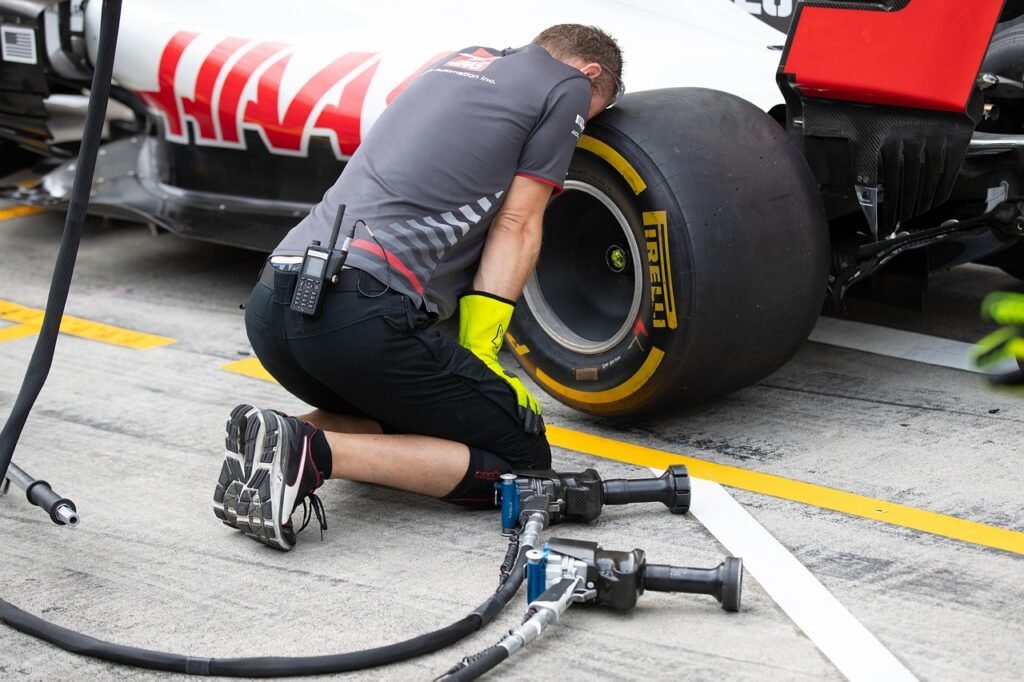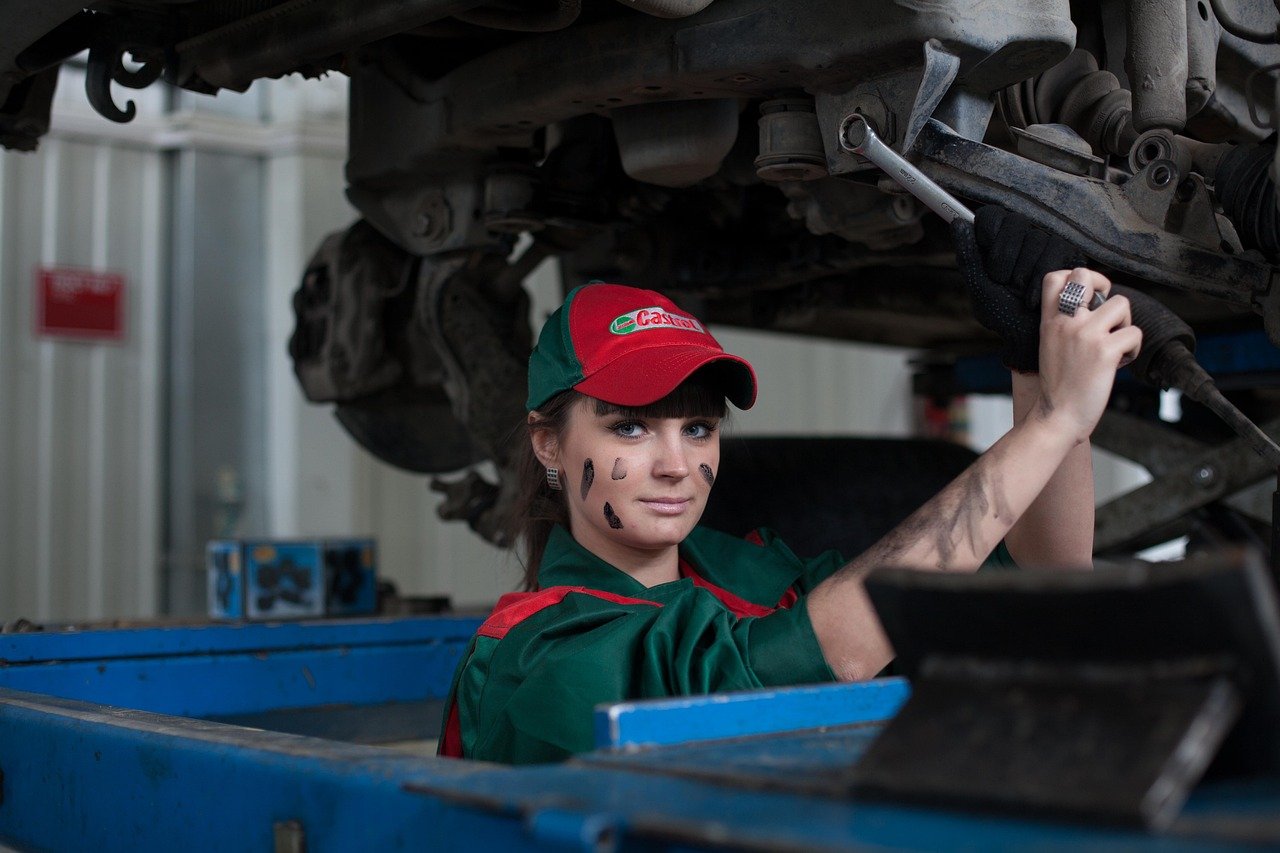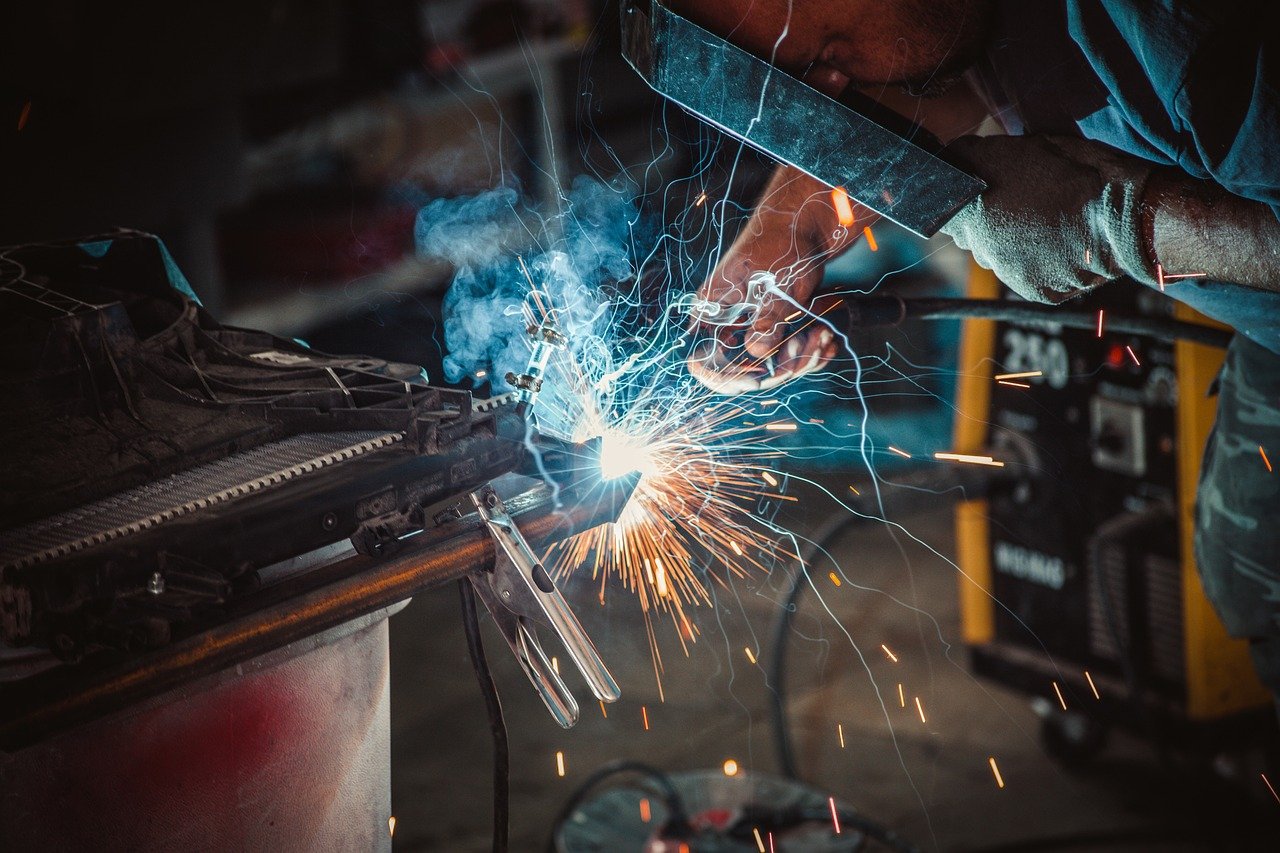Technological advancements, consumer behavior, and sustainability all seem to be pushing over the speed of change in the Indian automobile industry. With electric vehicles (EVs), connectivity, and autonomy reshaping the industry, the need for professionals coming with such advanced technologies for their upkeep and maintenance has intensified. Automotive service technicians and vehicle diagnostic technicians ensure that vehicles work well, safely, and optimally. They are the backbone of the industry, for which today’s complex vehicles can rely on for roadworthiness

.
As India’s automotive industry continues to expand and develop, it is essential to understand what specific skill sets automotive service technicians and vehicle diagnostics professionals need to attain relevance amid the rapidly evolving landscape.
- Strong Mechanical Aptitude
Automotive service technicians must have a strong mechanical background. They must appreciate the fine points of engine systems, transmissions, braking systems, and suspension systems. In India, where millions of vehicles are produced every year, technicians must have good knowledge about all types and makes of vehicles. Each vehicle has its own set of mechanical components, and the ability of these technicians to diagnose and repair mechanical problems expeditiously can also affect the performance and longevity of a vehicle.
As the production of vehicles continues to grow in India, the demand rises for technicians with adequate mechanical skills. A thorough understanding of mechanical systems being with the technicians who would therefore help them to troubleshoot and repair any arising problems quickly and efficiently makes such technicians an asset to the industry. - Knowledge of Advanced Diagnostic Tools
Modern-day vehicles are much more complicated than they used to be. Digital diagnostics have recently surged into prominence, along with onboard systems and the integration of complex technologies. Therefore, automotive service technicians need to be adept at using diagnostic equipment. OBD-II scan tools, digital multi-meters, and relevant software are other important tools used in the diagnostics of problems with a vehicle’s systems.
The proliferation of electric vehicles, compliable with the policies of the Government of India under the Faster Adoption and Manufacturing of Electric Vehicles (FAME) scheme, calls even more for this capability. Technicians should not just be trained in conventional diagnostic tools but should also be familiar with the intricacies of EV-specific diagnostic systems for thorough servicing and maintenance. This specialized knowledge is absolutely necessary for the proper servicing of electric vehicles and their unique elements like batteries and motors. - Knowledge in Electrical and Electronic Systems
The electrical and electronic systems of modern vehicles are on the rise. From wiring diagrams, sensors, and various electronic control units (ECUs) in automotive applications, one needs to know adequately how these systems function. This knowledge is significant because, with the industry having already put in some stringent emission norms like Bharat Stage VI (BSVI), which rely heavily on electronic systems for the management of engine performance and reduction of emissions, it becomes important.
The rising trend of electric vehicles (EVs) has made it even more demanding for knowledge-intensive professionals in electrical and electronic systems. EVs operate with highly sophisticated electrical components, such as charging systems and battery management systems and powertrain control systems. As the future of automobile technology in India leans toward EVs, an invaluable skill that technicians will own bears the handling of electrical systems and diagnosis of electronic failures. - Problem-Solving and Analytical Thinking
One of the key elements of automotive service technicians requires analytical thinking and problem-solving abilities. Vehicle systems are so complex today that sometimes diagnosing the problem can become difficult. The technician must present a structured manner while using his analytical thought process to look for the cause of the malfunction; be it mechanical, electrical, or related to software.
Because vehicles in India pass through diverse road conditions, climates, and fuel qualities, technicians must be able to troubleshoot problems that arise because of such external factors. The art of accurately diagnosing and fixing complex problems is key to keeping vehicles operational and customers satisfied. - Understanding of EV and Hybrid Technologies
Electric vehicles and hybrids are no longer vehicles of tomorrow; they are fast becoming commonplace in India. With projections that EVs may account for 30% of private cars and 70% of commercial vehicles by 2030, technicians should be equipped with the necessary knowledge to care for these modern vehicles, which involve an understanding of EV batteries, charging systems, electric powertrains, and hybrid engine technologies.
Training in EV and hybrid technology is available through specialized programs like that of the ASDC (Automotive Skills Development Council). Technicians well-versed in these technologies will be in a better position for servicing the rising EV market, ensuring they are not left out as the automotive transition to more sustainable options. - Customer Service and Communication Skills
Automotive service technicians must have proper technical knowledge and an attitude of a customer service environment coupled with good communication abilities. In India, where there still exist some learning curves regarding advanced vehicle technologies, one basic requirement is that technicians possess the ability to explain complex automotive issues in simple terminology. Clear communication prevents mistrust between the technician and the customer, thereby ensuring that the customer understands the problem and the solutions being executed.
Good customer service helps to maintain relationships and obtain repeat business, especially in a competitive one. While technicians who have just the technical ability will always command respect and admiration, those combining technical skills with the extra finesse of interpersonal skills will be welcomed anywhere in the industry. - Knowledge of Safety Standards and Laws
Safety in all matters has always been of prime concern in the automotive industry, and technicians ought to be aware of the standards and laws relevant to the industry. In India, Automotive Industry Standards (AIS), promulgated by the governing authority, put forth provisions about the design and repair processes that any practitioner should follow. Technicians should keep abreast of these regulations to ensure that the repairs and servicing are performed to the most thorough standards.
The increasing emphasis on electric and autonomous vehicles has also emphasized the necessity of conforming to global safety standards. Technicians must know the national regulations and international safety standards to ensure conformity, especially when working on vehicles being brought into the country and when preparing vehicles made in India for export. - Adaptability and Lifelong Learning
The automotive industry is undergoing transitions faster than ever. With autonomous vehicles, connected technologies, and AI-based systems entering the industry, automotive service technicians can expect continuous and constant changes in their work. Standing relevant in the industry requires a mindset of continuous learning and adaptability.
Training programs like those by ASDC help technicians upskill and keep pace with new developments in technology. Lifelong learning will ensure that technicians stay ever ready for varied challenges, whether it is learning to work with new software to diagnose electric vehicles or getting certified to handle autonomous vehicle systems.
With an increase in technological innovation and sustainability in the automotive industry in India, the services rendered by automotive service technicians and vehicle diagnostics professionals became even more critical. Electric vehicles and, in particular, autonomous and connected systems will require such specialized personnel to ensure the safety, performance, and efficiency of vehicles.
Technical skills mentioned above would ensure that professionals remain an indispensable part of this fast-maturing sector. Training and certification programs like those offered by the ASDC would help gain that all-important knowledge and experience to excel in the field. As that is transforming, so are the technicians and diagnostics specialists ahead of such transformations, who will carry forward and become the fulcrum for the future of mobility in India.

